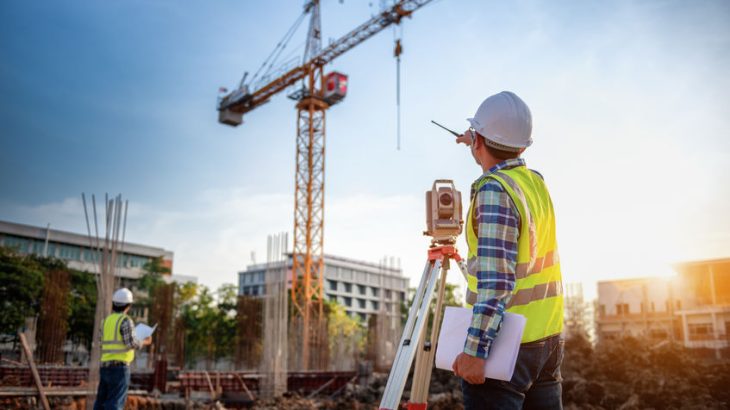Construction surveying serves as the foundation for successful building projects, providing critical information and measurements that guide the entire construction process. This guide aims to elucidate the fundamental aspects of construction surveying, its importance, methodologies, and its role in ensuring precision and accuracy in construction endeavors.
What is Construction Surveying?
Construction surveying involves the precise measurement and mapping of land and structures before, during, and after construction. It encompasses a range of tasks, from establishing property boundaries to providing detailed topographic information crucial for planning and execution.
Importance of Construction Surveying
Accurate Planning: Surveying helps in accurate project planning by providing detailed site information, ensuring that designs align with the physical characteristics of the land.
Property Boundaries: Identifying and marking property boundaries is essential to avoid encroachment or disputes during construction.
Setting Foundations: Surveying ensures proper alignment and elevation for building foundations, ensuring structural stability.
Utility Placement: It guides the placement of utilities like pipelines, electrical lines, and drainage systems, preventing conflicts or future issues.
Surveying Techniques and Tools
Total Stations: These advanced optical instruments measure angles and distances, providing precise measurements for layout and mapping.
Global Navigation Satellite Systems (GNSS): Using satellite signals, GNSS devices offer accurate positioning information essential for surveying.
Drones: Unmanned Aerial Vehicles (UAVs) equipped with cameras and sensors capture aerial imagery, providing detailed topographic data.
3D Laser Scanners: These devices create highly detailed three-dimensional models of construction sites, aiding in accurate measurements and analysis.
Phases of Construction Surveying
Preliminary Survey: Identifies property boundaries, assesses the site’s topography, and collects data necessary for project planning.
Construction Layout: Involves marking the site for excavation, establishing building lines, and ensuring accurate placement of structural elements.
As-Built Survey: Conducted after construction to verify that structures are built according to design specifications.
Surveying for Different Construction Phases
Site Selection and Planning: Surveying aids in evaluating potential building sites by analyzing factors like terrain, drainage, and accessibility.
Foundation and Excavation: Precise measurements and markings guide excavation and foundation placement to ensure alignment and depth accuracy.
Building Construction: Continuous monitoring and layout surveys ensure that buildings are erected as per design plans.
Importance of Accuracy in Surveying
Accuracy is paramount in construction surveying. Errors in measurements or misalignments can lead to costly rework, delays, or compromised structural integrity. Thoroughness and precision are essential throughout the surveying process.
Role of Surveyors in Construction
Professional surveyors play a pivotal role in construction projects. Their expertise in interpreting data, utilizing advanced tools, and providing accurate measurements ensures the success and safety of building endeavors.
Technological Advancements in Surveying
Modern advancements, such as Building Information Modeling (BIM), real-time data collection, and the integration of Geographic Information Systems (GIS), have revolutionized construction surveying, enabling better visualization, analysis, and decision-making.
Construction surveying forms the bedrock of successful building projects, laying the groundwork for accurate planning, precise measurements, and seamless execution. It ensures that structures are built with precision, adhere to regulations, and meet design specifications.
Understanding the basics of construction surveying illuminates its critical role in the construction industry. By employing advanced tools, embracing technological advancements, and relying on skilled surveyors, construction projects can achieve higher efficiency, accuracy, and ultimately, successful completion. Incorporating the principles of construction surveying ensures that every building project begins and progresses with the accuracy needed for its ultimate success.
Transform your construction projects with precision and accuracy. Existing Conditions Surveys delivers comprehensive construction surveys in Melbourne. Gain a competitive edge with detailed insights. Contact them today for expert surveying that lays the groundwork for your project’s success.



















